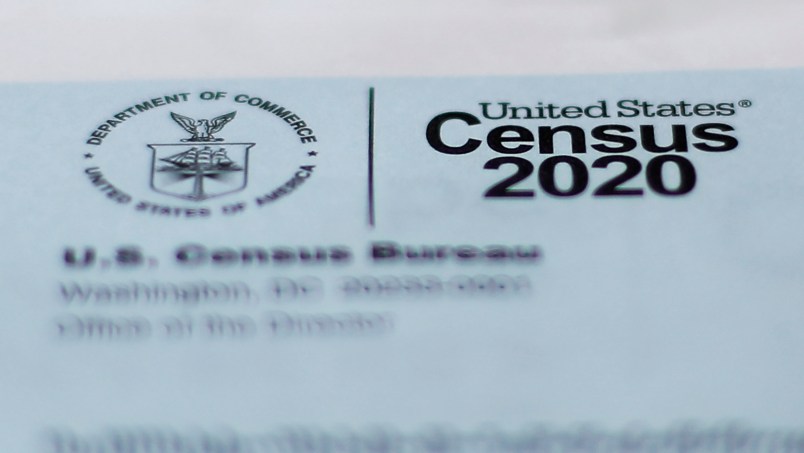A federal judge in New York wants to move quickly in deciding whether the Trump administration can lawfully implement the President’s new anti-immigrant census policy.
A briefing schedule laid out by U.S. District Judge Jesse Furman at a Wednesday hearing makes it possible for him — if he is convinced by the challengers’ arguments — to freeze the policy while the 2020 count is still underway.
But that possibility comes with the caveat that the case could soon be kicked to a panel of three judges, who might take a different approach to expediting this early phase of the litigation.
The case —a consolidation of two lawsuits that are challenging Trump’s effort to exclude undocumented immigrants from congressional apportionment — has major, long lasting consequences for how political power is doled out across the country.
If Trump is allowed to implement the policy, states with immigrant-rich populations will likely be granted fewer House seats after the 2020 census than they would otherwise. Congressional representation for whiter, less diverse states, meanwhile, will be boosted.
The lawsuits allege such an approach violates the Constitution’s mandate that a “whole number of persons” be counted for congressional apportionment. It runs afoul of federal statutes that deal with the census as well, the lawsuits allege.
But the challengers are also arguing that the Trump’s announcement of the memo is already harming immigrant communities, by discouraging them from participating in the census right now.
Undercounting those populations will shift political power away from them, regardless of whether Trump was allowed to enact the apportionment policy itself.
Matthew Colangelo, a lawyer in the New York Attorney General’s office, said that his side will show how the President’s announcement of the new policy had “penetrated” the immigrant community. It has “exacerbated” the lack of trust immigrants have for the government, Colangelo said, making it harder to convince them to participate in the census.
Furman showed some skepticism toward those claims, asking whether that harm could really be “undone,” even if he issued a quick decision in the challengers’ favor.
But he also had tough questions for the attorney representing the Justice Department, which is arguing that the case need not be resolved until next year or even later, after the President formally releases the numbers for apportionment in January.
Furman asked the Justice Department: if the challengers do prove that the alleged harm is happening now, does the government still believe that the court should wait to address it until after the President releases the apportionment numbers?
DOJ attorney Allison Rovner struggled to answer the question, prompting some frustration from the judge. Furman also noted the case would not have needed to be expedited had Trump not waited until when the 2020 census was well under way to announce the policy.
Furman said it was a “little bit rich” for the government to say that the census is almost over in arguing the case not be rushed.
“Isn’t that a problem of the president’s own making?” Furman said, while also pointing out that, had the president announced the policy sooner, then there would not be a need to speed up the litigation.
Furman previously presided over the census citizenship question case. In that case, a coalition of states led by New York, as well as an immigrant rights group represented by the ACLU, sought to block the Trump administration’s move to add a citizenship question to the decennial survey. The Supreme Court ultimately backed Furman’s finding that the administration had not been honest about its reasons for wanting the question added and that ruling effectively prevented the administration from adding it to the census survey.
This current case has attracted a similar set of challengers, and Furman kicked off Wednesday’s hearing with a line about “bringing the band back together.”
He said that his word was unlikely to be the last one in this case, as well. However, its path to the Supreme Court could be different than how the citizenship question case made it to the justices.
Because it deals with an apportionment issue, rather than first being decided by a trial judge, the case might need initially to go in front of a three-judge panel. A request that it take that route will be filed later Wednesday.
While that issue is being dealt with, Furman set a briefing schedule that will allow the challengers to ask him by the end of this week that the new policy be quickly blocked.
Paper briefing on that request, and any request from the government that the lawsuits be dismissed, would wrapped up by the end of August, under Furman’s schedule. That would leave time for a decision ahead of when the Census Bureau wraps up its counting operations by the end of September.







When Trump goes will we also have to hire all new Justice Dept. lawyers, or will deprograming be enough?
This is where trump has created an interesting issue for himself. He has done so many illegal things, so much crime, that his and his doj enablers have been pulled into many courts. Many judges.
And when he does something illegal, it can often be considered “related to” something old, and can be fought before the same judge.
So the challenges went to Jessie Furman, who doj already lies too, and furman was then eventually upheld by the Supreme Court.
Furman is not messing around,.,
"Fish flop around before they die." – David Jolly
In all fairness, Trump is used to things finishing prematurely.
What are the chances that his equally malicious “we’re going to wrap this all up by the end of September” nonsense gets challenged and before the same judge?
All of these things are of the same piece: politically skewing census data